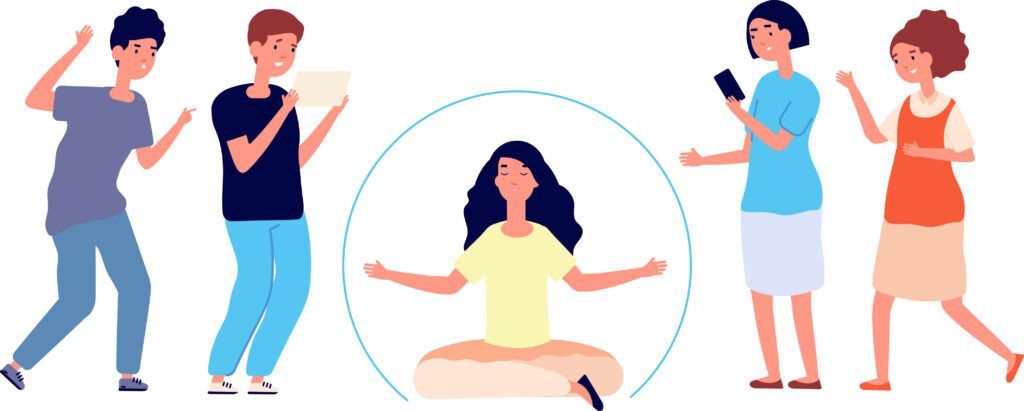by JENNIFER GOODSON, MA, LMHC
What are boundaries, and how can they improve our mental health?
Boundaries are set to provide a perimeter of peace around our body, mind, and spirit. Without them, we welcome chaos in our lives. This wreaks havoc on our thought patterns, emotions, and responses. Boundaries protect us from being mentally and emotionally drained or used and manipulated by others. They give definition to where we begin and others end.
We hear a lot about boundaries in relationships. While these are important to develop, we must understand it starts with setting boundaries around our minds.
How do I know I need boundaries?
- Feeling guilty, obligated, or fearful when saying “no.”
- Lack of time management.
- People-pleasing to avoid uncomfortable emotions.
- Taking on the emotions of others.
- Saying “yes” to tasks that are not your responsibility.
- Blaming others for your emotions and responses.
- Decision-making feels like a chore and creates anxiety.
- You are exhausted, burned out, and have no joy.
- Relationships are complex and draining.
- Lost the sense of self.
- Don’t ask for what you need.
- Avoid confrontation.
- Blame yourself for things out of your circle of control.
- You look to others to define your worth.
- Dwelling on negative thought patterns that explode your emotions and create toxic responses.
Boundary setting begins in our thoughts and beliefs of ourselves.
Our thoughts have power over us IF we allow them. Not every thought is our thought. Our past and multiple things throughout the day influence our thoughts.
Just because we think it doesn’t mean we have to own it. Why allow it to dictate your thought process, emotions, and responses if it is not factual or holds no evidence of truth. Take hold of the thought before it produces an emotion and prompts a response.
Setting boundaries around our mind says we have the power to entertain a thought or not. What we don’t feed won’t grow!
This is the first step in developing healthy boundaries. Take back the power over your thoughts. Think about what you’re thinking about!
Once this begins, you learn to regulate your emotions and choose your response.
You become more self-aware by evaluating your core beliefs (beliefs you have of yourself that have developed over time). We filter our responses to others and situations and make decisions based on our core beliefs. If we have negative thoughts of ourselves, we are more apt to have a lack of boundaries with ourselves and others. We will find ourselves taking on the emotions of others, feeling guilty when saying “no,” and avoiding confrontation.
Reflect, evaluate, and be intentional about being self-aware before responding. Take a pause, breathe, and then choose how you want to respond. You’ll find more self-control and peace in this process.
Don’t forget, not everything needs a response!
Furthermore, we are not responsible for anyone else’s response but our own. We choose how we respond. Don’t take ownership of something that is not yours. If it’s not your emotion being demonstrated, not your words or actions, don’t pick it up! We choose to feel an emotion, and we decide how we respond. Just like how we have the power to choose what we think about.
We do not have any control over someone else’s emotions or response – that is theirs, so let them own it. Don’t pick it up!
Once we grasp the concept that we have power over our thoughts, emotions, and response, we can begin to set healthy boundaries with others. Own what is in your yard and show the exit to everything else.
Healthy boundaries create a healthy mind, healthy relationships, and positive outcomes!
ABOUT THE AUTHOR: Jennifer Goodson, MA, LMHC, is a licensed mental health counselor with an office in Winter Haven, FL. She holds a Master of Arts in Clinical Mental Health Counseling from Regent University in Virginia Beach, Virginia. Jennifer facilitates Boundary Classes in the fall. For more information, visit www.pathwaycounselingservice.com.
